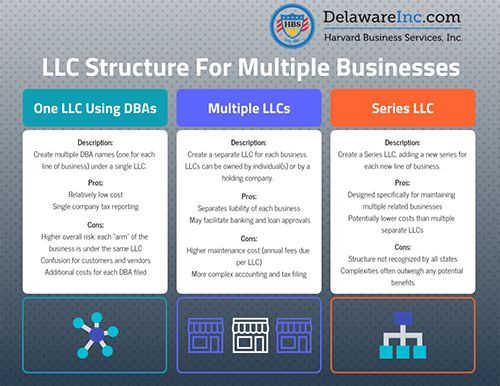How To Run Multiple Small Businesses

In today's dynamic economic landscape, the allure of entrepreneurship has expanded beyond single ventures. More individuals are exploring the possibility of managing not just one, but several small businesses simultaneously. This pursuit, while potentially lucrative, demands careful planning, meticulous execution, and a keen understanding of the challenges involved.
Running multiple small businesses requires more than just ambition. It demands a strategic approach to time management, resource allocation, and team building. Successfully juggling various ventures involves a holistic strategy that focuses on efficient systems, capable delegation, and constant adaptation.
Building a Solid Foundation
The first step is identifying viable business opportunities. Market research is critical, ensuring each business idea has a strong potential for success. Consider your existing skills and resources.
Avoid overextending yourself by venturing into completely unfamiliar territories initially. Diversification is key, but starting with businesses that complement each other can streamline operations and reduce the learning curve.
Developing Robust Systems and Processes
Scalability hinges on creating repeatable, efficient systems. Standard Operating Procedures (SOPs) are essential for all core functions, from customer service to inventory management.
Investing in technology is also crucial. Project management software, CRM systems, and accounting tools can automate tasks, improve communication, and provide real-time insights into each business's performance.
According to a 2023 study by the Small Business Administration (SBA), businesses that utilize cloud-based technologies experience 20% faster growth on average.
Mastering the Art of Delegation
You cannot do everything yourself. Effective delegation is the cornerstone of managing multiple businesses.
Hire competent managers who can take ownership of day-to-day operations. Clearly define their roles and responsibilities, and empower them to make decisions.
Regular communication is vital, but avoid micromanagement. Trust your team and provide them with the support they need to succeed. This frees you to focus on strategic planning and overall business development.
Time Management Strategies
Time is your most valuable asset. Implement strict time management techniques to maximize productivity.
Prioritize tasks based on urgency and importance. Schedule dedicated time blocks for each business, and stick to your schedule as closely as possible.
Consider using time management apps or frameworks like the Pomodoro Technique to stay focused and avoid distractions.
Financial Management: A Critical Component
Maintaining separate financial records for each business is essential. This allows you to track performance accurately and identify areas for improvement.
Carefully manage cash flow across all businesses. Ensure you have sufficient funds to cover expenses and invest in growth.
Regularly review financial statements and KPIs (Key Performance Indicators) to monitor profitability and make informed decisions. Seek advice from a qualified accountant or financial advisor.
Proper budgeting is crucial for each individual business and requires diligent tracking.
Balancing Act and Avoiding Burnout
Running multiple businesses can be incredibly demanding. It is important to prioritize your well-being to avoid burnout.
Schedule regular breaks and vacations. Delegate tasks to trusted team members when needed.
Set realistic expectations and celebrate small victories. Remember that building successful businesses takes time and effort.
"The key to success in managing multiple businesses is not about doing everything yourself, but about building a strong team and empowering them to succeed." - John Maxwell, Leadership Expert
Looking Ahead: Sustainability and Growth
Focus on sustainable growth for each business. Avoid overexpansion, which can strain resources and compromise quality.
Continuously monitor market trends and adapt your strategies accordingly. Be prepared to pivot if necessary.
Building a strong brand reputation for each business is crucial for long-term success. Provide excellent customer service and consistently deliver on your promises.
Ultimately, the ability to successfully run multiple small businesses hinges on a combination of strategic planning, effective delegation, and unwavering dedication. While the journey may be challenging, the rewards can be substantial for those who are willing to put in the effort.


















